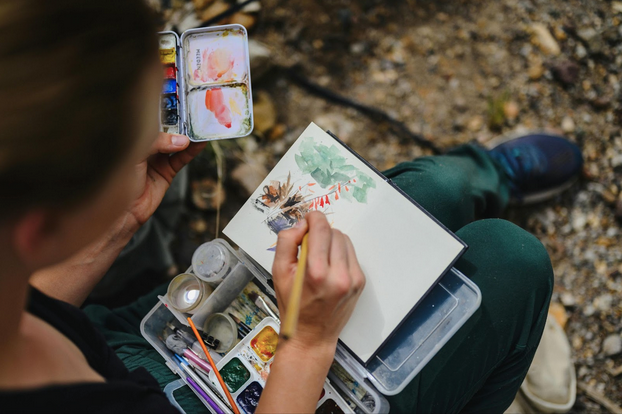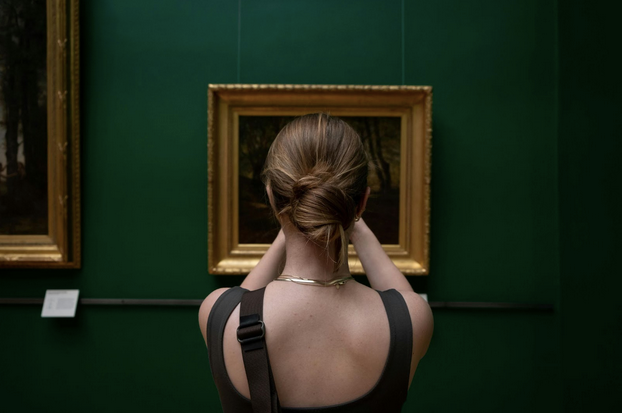Effective Ways to Elevate Your Artistic Talents

The act of improving your artistic skills isn't all about practice but more about trying new techniques, inviting feedback, and keeping your creativity on. Be you a well-established artist or just starting off in these fields, there's always more to learn and adjust. In this section, we'll talk about four great ways to push your limit as an artist-from mastering the basics to using progressive tools. In that process of constant pushing, you will discover there some unseen potential and innovative ways of creating something. Art is a process; learning happens when new ideas are put into practice. Are you ready to unlock your full creativity? Then, let's get started!
Mastering the Fundamentals
No talented artist has honed their skills without mastering the fundamentals as a means to increase their talents. The building blocks of great art are basics such as drawing, shading, color theory, and composition. Many are eager to dive into more complex projects, but perfecting these basics provides a strong foundation for confidently advancing to higher-level concepts.
The ability to practice these skills will give you a wider latitude with your work and to create refined, polished pieces. When the fundamentals are mastered, it opens the door to experimentation with more complex styles and pushes creative boundaries.
Step-by-Step Process to Master the Fundamentals:
- Identify Core Skills: Enumerate the basic techniques you need to practice; for instance, drawing lines, perspective, shading, and color mixing.
- Create a Practice Schedule: Devote similar and concentrated time weekly to the practice of particular areas of improvement.
- Concentrate on Single Skill: Begin with one skill, which you then reduce to simpler exercises. Practice each of them until comfortable.
- Reference and guides: Learn from books, tutorials online, or real-life objects how to make effective use of those techniques.
- Keep the progress track: note in what areas you improved and where more work should be done. Do not be shy to go back to the basics if that is needed.
- Feedback: Show your work to fellow learners or tutors for constructive critique-that you are moving in the right direction.
Assistive Creative Options

There are, of course, many assistive creative options that provide artists with opportunities to build up their skills. A fine example would be paint-by-numbers kits, which allow artists to focus on perfecting their technique without the pressure of composition. For anyone considering these custom numbered painting kits, it's important to know that they aren't just for beginners; advanced artists also use them to refine brush control, experiment with color blending, or simply enhance attention to detail. They provide a structured way of painting, and hence are an ideal tool to hone certain skills.
Besides just pure analog ways, digital tools give the broadening view to try different brushes, textures, and layers; an artist might want to make a wide range of tests to get the style and technique difficult to achieve in traditional media. In that respect, digital tools flexibly allow artists to experiment with various effects, color schemes, and lighting without physical limitations.
There are also assistive resources available for more technical aspects of the art, such as study related to anatomy or complex composition intelligence. These avail references and practice materials to the artists for great precision and skill. Workshops and online communities of virtual art provide extended support by critiques, feedback, and learning from other artists around the world.
Seeking Constructive Criticism
One of the best ways to perfect your craftsmanship is through constructive criticism. The input of others opens up new visions about your work, and often you'll be able to catch any missteps you may overlook on your own. You get to hear feedback from online art communities, social media platforms, or local art clubs; even the people close to you that share an appreciation for art can become great sources of feedback. Other great options include professional critique groups, workshops, or mentorship programs where you can get insight from more established artists.
It is always good to approach criticism on a clear mind. Not all of it would go easy inside your stomach, but opening up your mind to views with a positive mindset paves the way for improvement. Learn from the constructive points, apply those suggestions which appeal to you, and remember, each critique helps you do better.
Reasons Why Constructive Criticism is Important:
- You get an objective view.
- You are able to move beyond your comfort zone.
- There is improvement in technical as well as creative skills.
- Builds resilience and flexibility in your creative process.
Trying Different Types of Art

Trying different mediums is one of the best ways to undertake new challenges and go on furthering your skills as an artist. Change your mediums-from switching out pencils for paints, trying clay, or moving onto digital-and suddenly a whole new box of creative opportunities opens up.
Each medium has its own set of techniques, textures, and ways of portraying ideas. These, in return, help to change the way you think and make adjustments to accommodate your new-found skills. This could trigger fresh inspiration, facilitate growth in your artistic range, and provide a more informed sense of your art style.
Working with varied materials will teach you how to handle a variety of tools that can open up fresh methods of creating. Whether watercolors, pastels, or 3D sculpture intrigue you, venturing out of your comfort zone keeps your creative process dynamic and at the top of its game.
Conclusion
The development of your artistic skills requires dedication, research, and a willingness to learn. You will be empowered to take your skills to the next level by mastering the fundamentals, utilizing creative resources, getting constructive critique of work, and playing with media. One of few careers where you will never stop learning-just by implementing these methods, not only will you improve your skills, but you will stimulate new creativity. Challenge yourself; remain open to new ideas, and let your creativity keep growing.